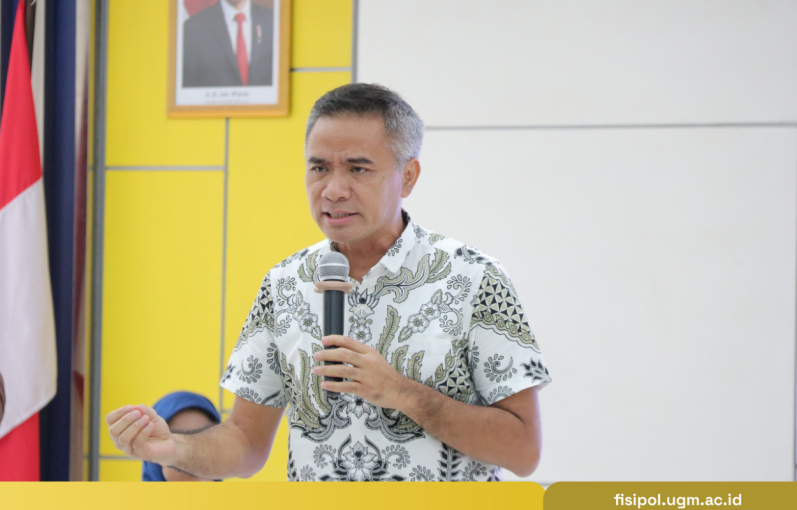
Yogyakarta. 4th of October 2024—As the world is going into phases of further industrialization, ‘green’ aspects of the economy are both important and inseparable to discuss. With that, stakeholders all around the world have put their utmost attention on the discourse of green economy. “Green economy” refers to a concept which advocates for an economic system that is low in carbon, efficient in both management and usage of resources, and socially inclusive. In order for Indonesia to compete and rise up the ranks in the world, Indonesia needs to ready its human resources to excel and for its job field to be in line with the principle of sustainable development.
Through the seminar with the title of “Green Economy-Green Job: Challenges and Solutions for Indonesia”, it is an elaboration about the conditions of Indonesian manpower as a base of the nation’s economy, as it is a requirement for Indonesia to be able to compete globally. This event opened with Keynote Speaker Prof. Drs. Anwar Sanusi, MPA., Ph.D., as Secretary General of the Indonesian Ministry of Manpower. He emphasized on the importance of preparing professional, productive, and competitive manpower in order for Indonesia to be ready to face global challenges.
“When talking about challenges in manpower, we don’t just talk about the green economy itself, but more in how we raise the working standards of those who are currently working in the informal economy. This is important, as workers working in the informal economy are often at high risk of acquiring and losing their jobs,” mentioned Anwar in his presentation.
This event also invited other notable keynote speakers including Wikan Sakarianto, PhD (Director at Akademi Inovasi Indonesia), Fina Itriyati, PhD (Lecturer at UGM’s Department of Sociology), and Amalia Prabowo S.Str. MM. CMT (President Director of ExportHub.id Ecosystem). Wikan opened the discussion by stating the importance of strengthening both the innovation and creativity aspects in the national curriculum, so as to create competent human resources. In the context of sustainability, Wikan wants Indonesia to play an active role as an actor and receive the benefits of becoming green. Therefore, human resources need to be trained and conditioned in such a way that competency is relevant with the needs of the workfield. According to him, this can be done through teaching factories or workplace-focused learning models in order to create competent human resources that are in line with the needs of the consumer.
According to Fina, a green-based curriculum should also have an emphasis on inclusivity. Currently, the challenges regarding government policies on education is that education is not inclusive enough.
“This is unfortunate, as the participation of marginalized groups, especially women, is very crucial in achieving sustainable development. Women have empathy, intuition, and emotional intelligence that is very close to nature, and therefore, there are strategic incentives in empowering women in green economies,” mentioned Fina.
Green jobs are supposed to widen the horizons of employment, and also make resource management much more efficient. According to Amalia, this can force stakeholders to get used to digital technologies and artificial intelligence.
“The Indonesian workforce must adapt to the changing times driven by digitalization. The expansion of digital technologies is a must in order to increase competitiveness in the global market,” said Amalia in her lecture.
This seminar is a result of collaboration between the Alumni Family of UGM (Kagama), the Indonesian Ministry of Manpower, the Alumni Family of Fisipol UGM (Kafispolgama), and UGM’s Faculty of Social Science and Political Science. This agenda aims to capture ideas and thoughts as a material for contemplation for the Alumni Family of UGM. With that, through this seminar, it is hoped that it can make a significant contribution in improving the understanding regarding the search for the solutions to issues related to green economy and green jobs in Indonesia.
